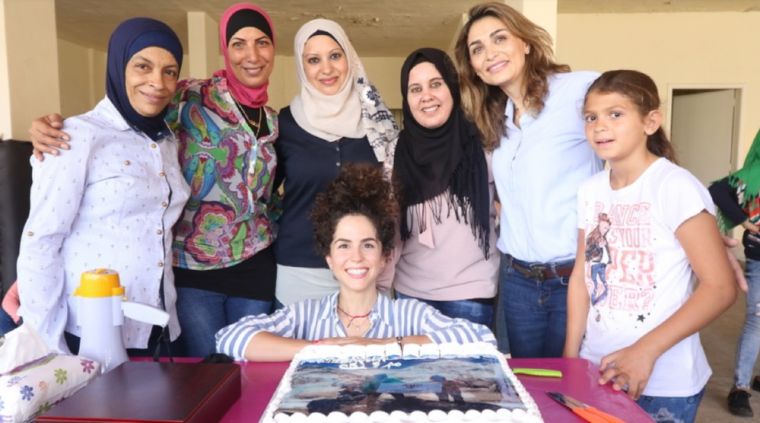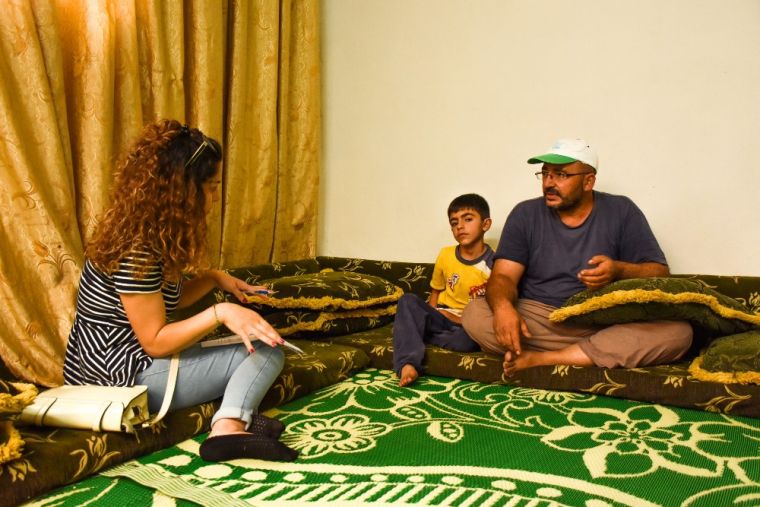Syrian women have suffered worst during a decade of war, now they want to be heard

Syrian women have raised their voices to call for peace and progress after ten years of a civil war that has now killed over half a million people. The conflict completes a full decade this month.
Women both inside the country and those living as refugees outside have united to mark this grim anniversary and call for greater action from the international community.
Women like Fadia, 29, a Syrian architect working to rebuild houses in areas devastated by war.
"Lots of women are working, especially the generation that grew up during the war," she says.
She believes that because of such experiences in the past decade, women are particularly committed to "building back better", starting with education.
Yet, as the World Economic Forum reports, girls in conflict zones are almost two and a half times more likely to be out of school than boys. This figure climbs to 90 per cent by the time they reach secondary school age. More support is needed.
"I always had the ambition to continue studying," said Fadia. "When the war happened, everything became a bit harder. Women want to progress and improve – not just themselves, but their communities too."
Despite these calls for investment in education and rebuilding, it will still be a long time before many families feel safe to return.
During the ten years of conflict, 6.5 million people have been internally displaced within Syria, and 5.6 million are registered refugees in neighbouring countries. Many of these women who have been displaced continue to call for greater international action.
Yasmin Kayali, a 38-year-old marketing executive, is one. She has since become a vocal advocate for Syrian refugee rights, speaking in the US Congress about the impacts of war on women and co-founding the charity Basmeh and Zeitooneh (B&Z) which supports female Syrian refugees.

"As world economies grapple with the impact of coronavirus, it is getting more difficult to find funding to support our work," she said.
"Despite this, I remain a very firm believer that when you try to do good, doors and windows open for you.
"Now, more than ever, we need to highlight the issues affecting refugee communities.
"With their voices and ours, we must continue to call for an end to the conflict and must ensure that refugees, especially women, have what they need to restore dignity in their lives."
People in the UK have given generous support. CAFOD, the UK-based international development charity, has raised nearly £4 million for its Syria Crisis Appeal, launched in 2012. But Hombeline Dulière, Emergency Programme Manager for CAFOD's Syria response, warns that needs are still great.
"Ten years on, millions still cannot return to Syria," she said from Lebanon.
"These families have limited prospects. They lack the means to settle and integrate in the areas to which they have fled, or to go elsewhere.
"Within Syria, the fight is still for people's basic needs. Many people work daily to alleviate suffering through humanitarian programmes, and call for the peace and reconciliation required to tackle the underlying causes of the crisis.
"But if the Syrian conflict is going to move towards the peaceful conclusion that so many hope for, then the international community must work together: to increase political and financial support, prioritise marginalised sections of society – in particular women and the young – and ensure that it is local organisations and people who lead the way."
Find out more about CAFOD's work in Syria at: cafod.org.uk/Syria











